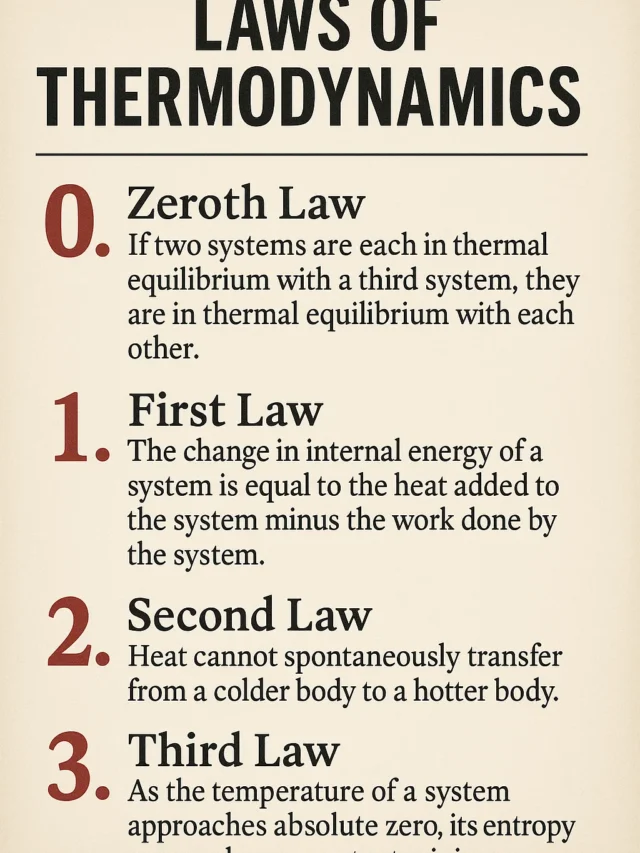How Outsourcing Helps To increase efficiency in Unilever ?
The globalized economy is creating major challenges in operational efficiency along with customer satisfaction. The major strategic approach to gaining exceptional value for the customers is the method of outsourcing. The non-core functions are getting outsourced by the companies to maintain their efficiencies. The competitive landscape where the major businesses operate demands highly effective operational functions.
The strategic approach of contracting with other outside vendors for the non-core functions is helping the organizations to increase their operational efficiencies (Bachar et al., 2023). Organizations conduct the tasks regarding supply chain management and integrate the supply chain with the other departments of the organization.
They coordinate with materials and financial flows to achieve improved customer satisfaction (Mazlan and Ali, 2005). The process of outsourcing the materials increases the pace of the business operations of the companies.
This essay is going to critically explore how the strategic process of outsourcing helps to increase the efficiency of the business operations of the multinational organization, Unilever. It is going to provide a brief argument by supporting the fact that outsourcing non-core activities can help generate better customer satisfaction through improved operational practice (Kondo and Vicente, 2023).
A comparative analysis of the advantages and disadvantages of outsourcing and in-house production is going to further clarify the major benefits of this strategic process and its impact on customer satisfaction.
Discussion on the outsourcing process and its benefits
Organizations usually get confronted with a multitude of options whenever it comes to the outsourcing of any product. The strategic approach can be divided into two broad categories which are buying-in products and producing them in-house.Outsourcing is defined as the process of contracting with specific external vendors who have a specialization in their respective areas.
It helps organizations access specialized expertise at a reduced operational cost (Mazlan and Ali, 2005). It helps to enhance the flexibility of the business operation of the company and by outsourcing noncore activities how companies can effectively allocate their resources. It involves a process of strategic decision-making that majorly allows an organization to achieve specific expertise by outsourcing it from external vendors (Bachar et al., 2022). The most common functions that are commonly outsourced are IT services, logistics, customer support, and manufacturing.
On the other hand, in-house productions usually require a lot of substantial investment in infrastructure, human resources, and other associated technologies. This approach helps to get better control over the customization process. However, the chances of scalability and innovation within this process became limited.
The outsourcing process is associated with a lot of key advantages that can contribute to the revenue growth of the company. It is highly beneficial for the cost management of companies that operate in a diversified market scenario (Chen et al., 2022). If a retail company that specializes in consumer electronics is considered for demonstrating these advantages then the following analysis can be considered for exploring the key advantages of the outsourcing process. The core activities of this company will be product design, marketing, and distribution.
Other than this, the non-core activities of this retail company will be manufacturing, customer service, and logistic analysis can be considered for outsourcing (Igwe, 2021). There are three key possibilities in this case. Firstly, if the company chooses to outsource the manufacturing process, in that case, they can achieve better scalability and also can get access to the advanced technologies of manufacturing. As a result of this, the quality of the product can be higher and it can lead to better customer satisfaction (Obi-Aso, 2021).
By outsourcing consumer electronics items from different external vendors, the company can also achieve fast-paced production. Different companies specialize in different consumer electronics products like laptops, televisions, smartphones, etc. The outsourcing process can help to offer them a wider range of high-quality consumer electronics products. Secondly, the customer service of the company can be outsourced.
This process can help to provide better customer satisfaction by creating a team that can dedicatedly resolve the issues of the customers. Different consumer electronics products have issues in their usage or technical aspects, these issues can be addressed by the team. They can attend to the queries of the customers round-the-clock. This customized and personalized interaction can help keep the consumers loyal to the brand. It can immensely help to enhance their satisfaction by providing a proper buying and service experience (Charles and Ochieng, 2023).
After-sale services are also very crucial for consumer electronics products, those issues can also be addressed effectively if the company contracts with an external vendor. Thirdly, the company can outsource its logistics operations as a non-core activity. This process ensures a timely delivery of the products. Logistics are highly essential to maintain customer satisfaction for consumer electronics brands. The third-party distributor has an extensive distribution network can help to minimize the company, its delivery time (Korucuket al., 2022).
Top UK Assignment Cities
The shipping cost can be majorly reduced as a result of this and it can also help to improve the overall services. An optimized delivery time can be considered a key to customer satisfaction in this industry, and by outsourcing this to an efficient provider the company can immensely increase its operational efficiency (Choudharyaet al., 2022). All of these three outsourcing processes can gradually lead to enhanced customer satisfaction as discussed.
Apart from this, there are other key advantages of this outsourcing process. It can help organizations save on the costs of labor, infrastructure, and technologies. This cost management can help the company to set competitive pricing of their products. This pricing strategy can help to enhance customer satisfaction as they can avail the exclusive consumer electronics goods at a comparatively lower price.
The providers usually inherit some specialized skills and resources that cannot achieved in the in-house production. Successful integration of these expertise skills with the present business operations can help the company to deliver an excellent product and service to its customers (Mwasiaji, 2020). It also allows the company to achieve specialized expertise in the required fields. This process also ensures that the consumer electronic products that get delivered to the customers are of excellent quality. However, outsourcing comprises a few key complexities and the organization may also need to invest in coordination activities to keep the outsourcing process effective and efficient (Tsay et al., 2018).
Outsourcing Practices at Unilever
The company focused on in the essay has been found associated with the advantages of outsourcing its non-core activities for quite a long time. The multinational brand has engaged in multiple outsourcing contracts in the past decade and vendors such as HP, IBM, Accenture, and BT have been found to partner with Unilever. The third-party providers have helped Unilever in managing several of its non-core activities. In 2005, Unilever decided to sign a contract with Accenture for seven years for its outsourcing needs (Ilori, 2021). In this agreement between Unilever and Accenture, the development and improvement of Unilever’s applications were primarily focused on.
The third-party company also helped Unilever to implement modern processes and support through the change to grow the business of Unilever all over Europe (Ilori, 2021). This contract with Accenture for the outsourcing needs of Unilever cost nearly 500 million USD and the third-party company was entailed to deploy a unified and strategic European IT platform along with the provisions of various IT services to the operations of Unilever in 20 different European countries (Accenture, 2023).
In 2005, Unilever also signed an outsourcing contract with IBM to facilitate the multinational company’s services in finance transactions in Europe (Amungo and Amungo, 2020). Around 750 staff members of Unilever were affected by this transition in 20 different regions of Europe. IBM had been allocated the task of overseeing the Purchase to Pay, Bill to Cash and General Accounting functions of Unilever.
The benefits of this contract with IBM satisfied Unilever at an extensive level, posing assertive impacts on the business growth and customer satisfaction that Unilever decided to extend the outsourcing contract with IBM. In this extended period of the contract, IBM was responsible for standardizing the procurement process of Unilever and integrating the same over all the operating regions across Latin America (Lieuet al., 2021).
In 2006 Unilever signed another contract with Accenture regarding their need to outsource HR BPO for seven years. According to this contract with Accenture, Unilever got the benefit of leveraging the advanced processes of the third-party organization in reward administration, workforce reporting, administration of payroll, management of employee performance at Unilever and core administration of HR activities in nearly one hundred countries around the world.
The outsourcing services of Accenture according to this contract were provided in 20 different languages. Services were delivered from diverse centers such as Prague, Dalian, Curitiba, and Bangalore (Accenture, 2024). In the same year, the multinational company decided to sign a contract with BT to outsource its communication services for three years.
This cost Unilever nearly 270 million USD (The Economic Times, 2024). Through the extended outsourcing contract, Unilever benefited in terms of internet access across its organizations in Europe, mobile, VPN, and videoconferencing services. Even the firewall management system of Unilever was found to be outsourced to BT for almost seven years which cost Unilever 10.5 million USD.
Later in 2008, Unilever partnered with HP for a seven-year contract to oversee and manage the operations infrastructure of Unilever across Asia, Turkey, Africa, and the Middle East (Grant, 2020). The traditional practice of outsourcing the non-core processes at Unilever has empowered the company to concentrate on its key services which is vital to intensify customer satisfaction within the company.
Feeling Overwhelmed By Your Assignment?
Get assistance from our PROFESSIONAL ASSIGNMENT WRITERS to receive 100% assured AI-free and high-quality documents on time, ensuring an A+ grade in all subjects.
Advantages and Disadvantages of In-house Sourcing
A company can gain several positive and negative impacts through the process of in-house production. Thus, it is essential to explore the advantages and disadvantages of in-house production within organizations. Companies can be beneficial with perceived control and assurance of the quality of the products or services they are producing (Javaidet al., 2021). Leveraging in-house sourcing organizations can gain full control in terms of the process of production which permits them to strictly maintain the standard product quality and ensure that the production rate is consistent.
In-house production is quite intense in protecting intellectual property. The sensitive proprietary and information of the valuable technologies and strategies can be safeguarded by following the in-house production process at modern organizations.
Additionally, the risk of intellectual property theft can be reduced through the practice of in-house production. Flexibility and adaptability are two major benefits of in-house sourcing. Greater flexibility can be achieved within companies which can be used to adjust schedules of production, and rapidly respond to the trends of the market while deciding to implement new and innovative processes without the need to depend on outsourcing partners (Theyel and Hofmann, 2021). Though in-house production requires a major upfront investment, the benefit of cost savings is also associated with the process.
Get Assignment Help for Top Subjects
The most common and obvious disadvantage of in-house production is the massive amount of capital investment. To establish the infrastructure of in-house production, companies may be required to make huge substantial investments to arrange required technologies, equipment, along human resources which may bring about significant strain on the financial capabilities of the company (Bhatia et al.,2024). The process development of in-house production is highly concerning for small-scale businesses and startups. In outsourcing, the chances of leveraging extensive innovative ideas and expertise are much higher than in an in-house production process.
In the case of in-house sourcing and production, companies may face the risk of limited expertise and specialization of processes rapidly and confidently. The lack of scalability is yet another challenge associated with in-house sourcing and production.
The process of sourcing and production may face issues with scaling up or down as per the requirement to align with the changing patterns and rate of customer demand. Another disadvantage associated with in-house sourcing and production is fixed overhead costs (Lue et al., 2021). This includes the cost of facility maintenance, salaries, along utilities which can be concerning for organizations during economic downturns or low demands.
In-house Capabilities Of Unilever
In the case of Unilever, the company has expanded its capabilities of in-house processes by raising the number of hubs for digital marketing that are scattered around the world. CEO of Unilever, Alan Jope mentioned that Unilever had enhanced the structural capability of the same through its 46 digital marketing hubs (McGonagle, 2021).
The purpose of creating these hubs was to facilitate the connection between multiple aspects such as online engagement leaders, audience analytics activation specialists, content managers, performance marketers, and experts in data governance. The benefits of creating the digital marketing hub of Unilever have brought a significant rate of success in the company’s financial statements.
According to the first quarter results in 2021 of Unilever, the company has reported to have a turnover of 12.3 billion EUR down to 0.9 per cent. However, the underlying growth of sales has been observed with a 5.9 per cent increase along with a 4.7 per cent growth in sales volume (McGonagle, 2021).
The impacts of the in-house operations within Unilever were asked and the CEO of the company conveyed that since 2017 when Unilever had launched its very own U-studio as the in-house operation space, the overall overheads of the company went down by 70 basis points. The statement of the chief executive officer of Unilever meant that the company had decided to increase its marketing costs without raising overall expenses. The company is currently more focused on digitalizing its processes and practices through the five growth fundamentals of Unilever (McGonagle, 2021).
Top Dissertation Topics UK
Argument Development
The benefits and application of those positive impacts associated with outsourcing have been found complementary to the customer satisfaction aspects of a company(Tsayet al., 2018). Choosing the multinational brand Unilever, it has been found that the brand has been engaged in outsourcing its non-core activities since an early age which helped grow the business and make a positive impact on customer perspectives.
The positive consumer perspective of Unilever can be justified through the current popularity of the brand and consumer demand as well. On the contrary, the in-house production decisions and practices of the company have directly impacted the turnover rate of the company in the first quarter of 2021. However, the sales and sales volume increased for Unilever’s digital marketing hubs.
Thus, it can be stated that Unilever can make strategic decisions regarding outsourcing its digital marketing activities and focus more on the other key functions that have led the company to a reduced turnover rate in 2021. Customer satisfaction measures can also be focused and increased by the company if the non-core along with certain marketing processes can be outsourced by Unilever.
Top UK Assignment Samples
Conclusion
The study has observed that with the outsourcing process, large-scale companies like Unilever can focus extensively on customer engagement and gain increased customer satisfaction as well. However, in-house sourcing and production also have certain benefits but in terms of customer satisfaction, companies should choose to outsource their secondary functions to third-party organizations.
Dissertation - Digi Assignment Help
-
How to Analyze Data for a Macroeconomics Dissertation ?by Amelia on May 6, 2025
Macroeconomics is a branch of economics that deals with the performance, structure, behaviour, and decision-making of an economy as a whole. Through Macroeconomics analysis, you will learn about interest rates, inflation, growth, employment, politics, and… The post How to Analyze Data for a Macroeconomics Dissertation ? first appeared on Digi Assignment Help.
-
How to Write an Accounting Dissertation: A Guide for UK Studentsby Amelia on February 19, 2025
UK students who do research in accounting should always update themselves with the current happenings, current issues, and modern aspects of the particular issue. Universities throughout the globe are competing to develop their research profile… The post How to Write an Accounting Dissertation: A Guide for UK Students first appeared on Digi Assignment Help.
-
How to Write a Dissertation on Patient-Centered Careby Amelia on February 7, 2025
Patient-centered care is a nuanced topic that has a great impact on healthcare. It primarily involves prioritising a patient’s requirements, preferences, and values. Writing a dissertation is a milestone in your academic journey, and writing… The post How to Write a Dissertation on Patient-Centered Care first appeared on Digi Assignment Help.
-
How to Structure a First-Class Dissertation: A Guide for UK Studentsby Amelia on February 6, 2025
Dissertations are worth so much, if you’re in your final year of the UK University, it’s worth a good chunk. Sometimes even 50, something even 100 of your final year mark. So, it is really… The post How to Structure a First-Class Dissertation: A Guide for UK Students first appeared on Digi Assignment Help.
-
Tips for Writing a Compelling Dissertation Abstractby Amelia on February 4, 2025
Why Abstract Matters? Abstract matters because it’s the first thing, or one of the first things, that somebody reading your thesis is going to see. Who is going to be reading your thesis, it’s your… The post Tips for Writing a Compelling Dissertation Abstract first appeared on Digi Assignment Help.
-
Dissertation Structure and Formatting Guidelines for UK Studentsby Amelia on January 10, 2025
The structure and format of a dissertation are critical for presenting your research or thesis in a well-organized and professional manner, enhancing its academic value and effectively showcasing your contributions to the field. Title Page… The post Dissertation Structure and Formatting Guidelines for UK Students first appeared on Digi Assignment Help.
Reference
Accenture (2023) Unilever and Accenture collaborate on Next Generation AI, Newsroom. Available at: https://newsroom.accenture.com/news/2023/unilever-and-accenture-collaborate-on-next-generation-ai (Accessed: 17 April 2024).
Accenture (2024) Accenture to help Unilever Transform Human Resources Operations in 100 countries with a seven-year outsourcing agreement, Newsroom. Available at: https://newsroom.accenture.com/news/2006/accenture-to-help-unilever-transform-human-resources-operations-in-100-countries-with-seven-year-outsourcing-agreement (Accessed: 17 April 2024).
Amungo, E. (2020). The rise of the African Multinational Enterprise (AMNE): The lions accelerating the development of Africa. Springer Nature. https://link.springer.com/content/pdf/10.1007/978-3-030-33096-5.pdf
Bachar, R. K., Bhuniya, S., AlArjani, A., Ghosh, S. K., & Sarkar, B. (2023). A sustainable smart production model for partial outsourcing and reworking. Mathematical Biosciences and Engineering, 20(5), 7981-8009. https://www.aimspress.com/aimspress-data/mbe/2023/5/PDF/mbe-20-05-346.pdf
Bachar, R. K., Bhuniya, S., Ghosh, S. K., & Sarkar, B. (2022). Sustainable green production model considering variable demand, partial outsourcing, and rework. AIMS Environ. Sci, 9, 325-353. https://www.aimspress.com/aimspress-data/aimses/2022/3/PDF/Environ-09-03-022.pdf
Bhatia, M., Meenakshi, N., Kaur, P., & Dhir, A. (2024). Digital technologies and carbon neutrality goals: An in-depth investigation of drivers, barriers, and risk mitigation strategies. Journal of Cleaner Production, 141946. https://www.sciencedirect.com/science/article/pii/S0959652624013945
Charles, M., & Ochieng, S. B. (2023). Strategic outsourcing and firm performance: a review of literature. International Journal of Social Science and Humanities Research (IJSSHR) ISSN 2959-7056 (o); 2959-7048 (p), 1(1), 20-29. https://researchbridgepublisher.com/index.php/ijsshr/article/view/5
Chen, G., Yan, Z., Chen, J., & Li, Q. (2022). Building information modeling (BIM) outsourcing decisions of contractors in the construction industry: Constructing and validating a conceptual model. Developments in the Built Environment, 12, 100090. https://www.sciencedirect.com/science/article/pii/S2666165922000242
Choudharya, N., Sinhab, A. P., & Mukherjeeb, S. (2022). Imperatives of Service Innovation on Customer Satisfaction and Loyalty: Perspective of Indian Retail Banking Sector. In International Marketing Conference II iMarC2022 Contemporary Research in Marketing: Innovation, Inclusion & Integration.[Google Scholar]. https://www.iimshillong.ac.in/wp-content/uploads/2022/12/eProceedings-iMarC_2022.pdf#page=15
Grant, J. (2020). Greener marketing. John Wiley & Sons. https://books.google.com/books?hl=en&lr=&id=EivwDwAAQBAJ&oi=fnd&pg=PP1&dq=Grant,+J.,+2020.+Greener+marketing.+John+Wiley+%26+Sons.&ots=6iwZJ1OVc4&sig=JQpkcOn6r9IO9JJLJDkygA-h-Rw
Igwe, T. C. (2021). outsourcing decision and firm operational productivity: A study of selected oil companies in Port Harcourt, Nigeria. International Journal of Accounting Research, 6(1), 25-34. https://j.arabianjbmr.com/index.php/ijar/article/view/180
Ilori, B. O. (2021). Cost Efficiency: A Key factor for IT Outsourcing in Facilities Management. DII-2021, 463. https://ujcontent.uj.ac.za/view/pdfCoverPage?instCode=27UOJ_INST&filePid=136739820007691&download=true#page=464
Javaid, M., Haleem, A., Singh, R. P., & Suman, R. (2021). Significance of Quality 4.0 towards comprehensive enhancement in manufacturing sector. Sensors International, 2, 100109. https://www.sciencedirect.com/science/article/pii/S2666351121000309
Kondo, K., & Vicente, Â. J. B. (2023). The Coordination Imperative: A Comprehensive Approach to Align Customer Demand and Inventory Management for Superior Customer Experience in Retail (Doctoral dissertation, Massachusetts Institute of Technology). https://dspace.mit.edu/handle/1721.1/152447
Korucuk, S., Aytekin, A., & Karamaşa, Ç. (2022). An analysis for outsourcing based risks and problems in logistics enterprises. Journal of process management and new technologies, 10(3-4), 106-120. https://aseestant.ceon.rs/index.php/jouproman/article/view/41224
Lieu, P. T. H., Arunjit, N., Buapradabkul, S., & Nathaniel, D. Unilever Company Strategic Business Analysis. http://dspace.fcu.edu.tw/handle/2377/32072
Lu, L., Zhang, L., & Ou, J. (2021). In-house production and outsourcing under different discount schemes on the total outsourcing cost. Annals of Operations Research, 298, 361-374. https://link.springer.com/article/10.1007/s10479-018-2866-3
Mazlan, R.M.R. and Ali, K.N., 2005. Relationship between supply chain management and outsourcing (Doctoral dissertation, Heriot-Watt University).https://www.academia.edu/download/39473299/Relationship_between_supply_chain_manage20151027-14927-1vi1ez4.pdf
McGonagle, E. (2021) Unilever expands in-house capabilities as the company becomes ‘match fit’: Advertising, Campaign Asia. Available at: https://www.campaignasia.com/article/unilever-expands-in-house-capabilities-as-company-becomes-match-fit/469299 (Accessed: 17 April 2024).
Mwasiaji, E. (2020). Quality imperative value addition and the performance of medium scale manufacturing enterprises in Kenya. Journal of Accounting, Business and Finance Research, 8(1), 39-46. https://core.ac.uk/download/pdf/287165173.pdf
Obi-Aso, N. E. (2021). Process improvement strategy for sustainable land administration in developing countries: Imperatives for Six Sigma. International Journal of Engineering, Management and Humanities, 2(3), 10-19. https://www.researchgate.net/profile/Nkiruka-Obi-Aso/publication/352257837_Process_Improvement_Strategy_for_Sustainable_Land_Administration_in_Developing_Countries_Imperatives_for_Six_Sigma/links/60c0ca6e299bf1949f4441d5/Process-Improvement-Strategy-for-Sustainable-Land-Administration-in-Developing-Countries-Imperatives-for-Six-Sigma.pdf
The Economic Times (2024) Unilever extends BT’s IT outsourcing contract by 3 years, The Economic Times. Available at: https://economictimes.indiatimes.com/tech/ites/unilever-extends-bts-it-outsourcing-contract-by-3-years/articleshow/21778631.cms?from=mdr (Accessed: 17 April 2024).
Theyel, G., & Hofmann, K. H. (2021). Manufacturing location decisions and organizational agility. Multinational Business Review, 29(2), 166-188. https://www.emerald.com/insight/content/doi/10.1108/MBR-02-2020-0035/full/html
Tsay, A. A., Gray, J. V., Noh, I. J., & Mahoney, J. T. (2018). A review of production and operations management research on outsourcing in supply chains: Implications for the theory of the firm. Production and Operations Management, 27(7), 1177-1220. https://journals.sagepub.com/doi/abs/10.1111/poms.12855






